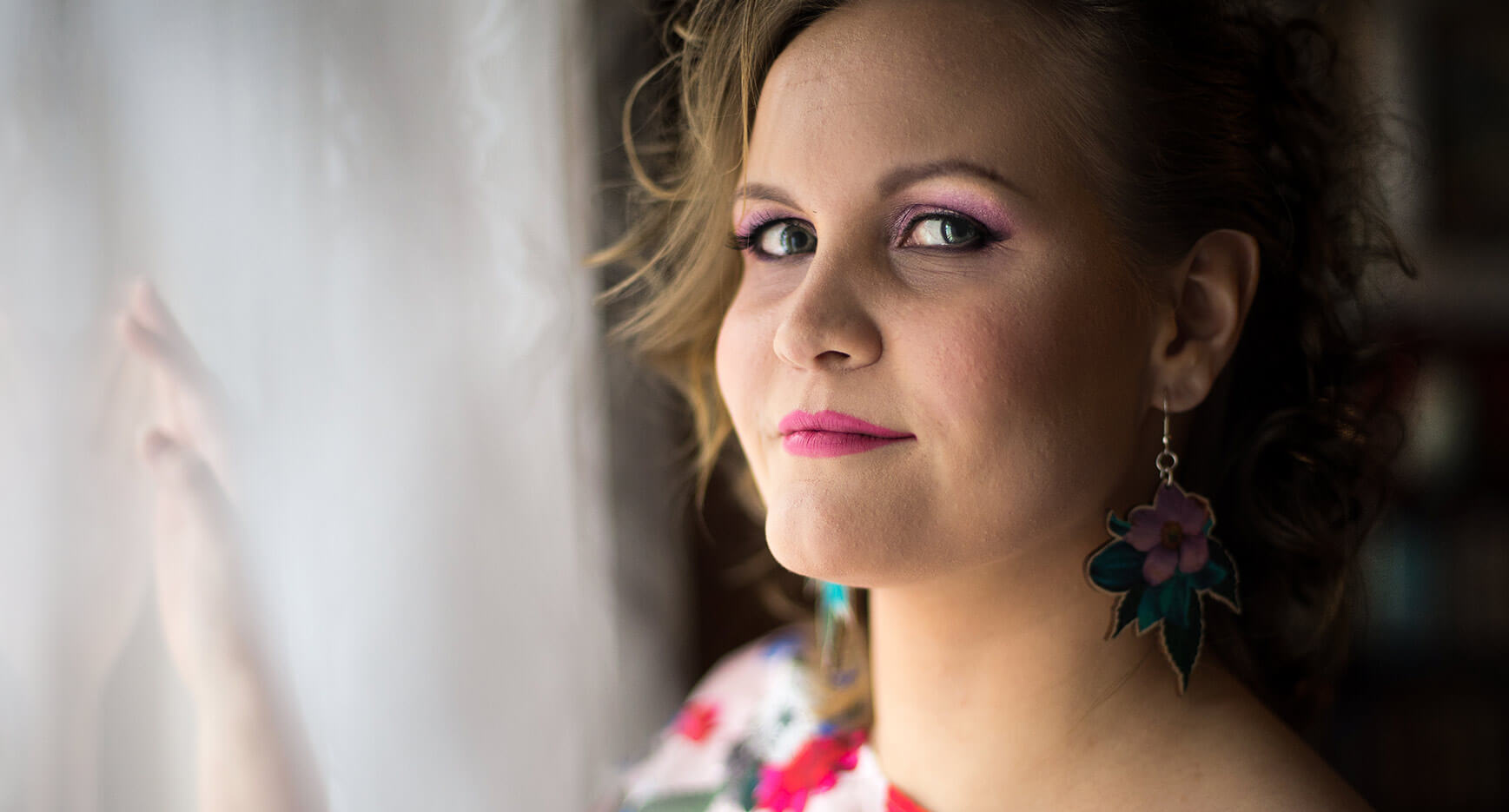Endometriosis is like a journey no one wanted to go on
“ My endometriosis started to show symptoms as soon as my period started. For a long time, I had no idea that the severe pain and heavy bleeding were in any way abnormal. ”
“Setbacks and suffering, but also successes, courage, love, and joy for the small moments.”
My endometriosis started to show symptoms as soon as my period started. For a long time, I had no idea that the severe pain and heavy bleeding were in any way abnormal. I started using my first contraceptive pill on the eve of my majority, and already then, I remember hearing for the first time the word "endometriosis" at the gynaecologist's office, although I didn't pay much attention to it.
The contraceptive kept some of the bleeding and pain at bay for four years, with less frequent periods, until the pain suddenly became daily. Not only did my menstrual symptoms become more severe, but the menstrual pain continued day after day. I was really scared of the pain and started looking for information about it on the internet. I came across a list of endometriosis symptoms online, and something clicked in my mind: This could be exactly it. I first went to a gynaecologist at a private clinic, but they labelled my daily symptoms as menstrual pain. I was not discouraged, and after a while, I went to the doctor again, this time to my local health centre, where the gynaecologist confirmed my suspicion of endometriosis. At the end of 2014, I had my first endoscopy at the central hospital. Endometriosis was indeed found, and from that point, my own long and tortuous treatment journey began. A lot has happened between then and now, from the first operation to the present: Another surgery, heavy medication, nerve damage, chronic pain conditions, and pain medication. Setbacks and suffering, but also successes, courage, love, and joy for the small moments.
My illness has been received in many different ways. The scale ranges from suspicion and offensive behaviour to benign curiosity and gentle acceptance. One of the difficult things about having endometriosis, in my opinion, is that because the disease is not very well known, it is often difficult for an outsider to even guess what a sufferer might be going through. Other things that have been difficult for me have been accepting the disease and its realities, actively advancing my own treatment, and looking after my wellbeing in the face of exhaustion. I have both needed and received support and understanding from my family, my loved ones, the peer support group at Korento, my gynaecologist, and other specialists. My educational institution has also been very understanding of my slow pace of study, which has further motivated me to continue towards graduation.
Endometriosis has taught me, or rather forced me, to be merciful to myself, to take responsibility for my medication and treatments, and to see that I really cannot plan my life very carefully. Many plans have been rescheduled, and I've had to admit to myself that sometimes you honestly have to do things as dictated by your health, and it's not worth carrying an unnecessary burden of guilt. Sometimes you get too tired, and that's when you're allowed to rest. Sometimes I'm more energetic, and then, I can do as much as my energy allows. My attitude towards my illness is still far from being completely accepting and gentle, but little by little, getting better at dealing with different, difficult things. Endometriosis is like a journey that no one wanted to go on, but which everyone is sure to survive, albeit with gritted teeth.
I would like to encourage others with this disease to join Korento’s peer support group. The group provides knowledge, friends, understanding and acceptance of each member’s personal experiences, whether they be of mild symptoms or severe treatments. I also want to encourage people to investigate any strange symptoms related to their menstrual cycle. Whether diagnosed or not, if your symptoms are interfering with your life and fit the description of endometriosis, it's time to start looking for answers. The right treatment and monitoring, tailored to the individual patient, are the only things that will help with the symptoms. That's why I think it's important to take care of your wellbeing, both mental and physical, and find someone who can help you. For anyone who suspects or has endometriosis: Don't be discouraged, every tomorrow is a new chance!
‹ Back to stories